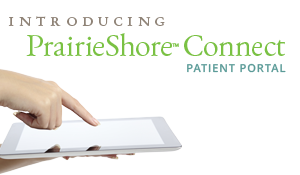Chronic Pelvic Pain
What is pelvic pain?
Pelvic pain is pain below the belly button but above the legs.. It is considered chronic if you have had it for at least 6 months. The type of pain varies from person to person. In some, it is a mild ache that comes and goes. In others, the pain is so steady and severe that it makes it hard to sleep, work, or enjoy life.
If your doctor can find what’s causing the pain, treating the cause may make the pain go away. If no cause is found, your doctor can help you find ways to ease the pain and get back your quality of life.
Common causes of pelvic pain
Possible causes of pelvic pain in both men and women include:
- Appendicitis
- Bladder disorders (such as urinary tract infections)
- Sexually transmitted diseases
- Kidney infection or kidney stones
- Intestinal disorders (such as diverticulitis or colitis)
- Nerve conditions (such as pinched nerves of the spine)
- Hernia
- Pelvis disorders (such as tightness and spasm of pelvic muscles)
- Broken pelvic bones
- Psychogenic pain (pain related to stress or psychological traumas from the past)
- Physical or sexual abuse. Experts aren’t sure why this is so, but about half of women with chronic pelvic pain have a history of abuse.
- Scar tissue (adhesions) in the pelvic area after an infection or surgery.
Possible causes of pelvic pain in women only
- Pregnancy
- Ectopic pregnancy
- Miscarriage
- Pelvic inflammatory disease
- Ovulation
- Menstrual cramps
- Ovarian cysts or other ovarian disorders
- Fibroids
- Endometriosis
- Cancer (cervix, uterus, or ovaries)
Doctors don’t really understand all the things that can cause chronic pelvic pain. So sometimes, even with a lot of testing, the cause remains a mystery. This doesn’t mean that there isn’t a cause or that your pain isn’t real.
Sometimes, after a disease has been treated or an injury has healed, the affected nerves keep sending pain signals. This is called neuropathic pain. It may help explain why it can be so hard to find the cause of chronic pelvic pain.
Symptoms of pelvic pain in women
The type of pain can vary widely and may or may not be related to menstrual periods. Chronic pelvic pain can include:
- Pain that ranges from mild to severe
- Pain that ranges from dull to sharp
- Severe cramping during periods
- Pain during sex
- Pain when you urinate or have a bowel movement
Chronic pain can lead to depression. Depression can cause you to feel sad and hopeless, eat and sleep poorly, and move slowly.
Diagnosis and medical evaluation
Your gynecologic doctor will do a complete pelvic exam to look for problems with your reproductive system. The doctor will also ask questions about your past and present health and about your symptoms. You may have some tests, such as:
- Blood and urine tests to look for signs of infection
- A pregnancy test
- Tests for sexually transmitted diseases (STDs)
Emotional issues can also play a big role in chronic pain. Your doctor may ask questions to find out if depression or stress is adding to your problem. You may be asked about any past or current sexual or physical abuse. It can be hard to talk about these things, but it’s important to be honest with your doctor so you can get the right treatment.
If the first tests don’t find a cause, you may have other tests that show pictures of the organs in your belly, such as a transvaginal ultrasound, MRI or CT scan of the pelvis.
You may also have a type of minor surgery called laparoscopy. In this surgery, the doctor puts a thin, lighted tube with a tiny camera through a small cut in your belly. This lets the doctor look for problems like growths or scar tissue inside your belly.
Finding the cause of pelvic pain can be a long and frustrating process. You can help by keeping notes about the type of pain you have, when it happens, and what seems to bring it on. Show these notes to your doctor. They may give clues about what is causing the problem or the best way to treat it.
Treatment
Treatment for chronic female pelvic pain can be approached in two ways: treating a known, specific cause of the pain or treating the pain itself as a medical condition. When possible, your doctor will do both. You may need to try many treatments before you find one that works for you. If a treatment isn’t helping, ask your doctor what else you can try. Taking an active role in your treatment may help you feel more hopeful.
Treating a known or suspected cause
Depending on the cause, treatment may include:
- Medicine to control or stop the ovulation cycle. This is done if cyclic hormonal changes seem to make your symptoms worse.
- Medicines to treat other diseases, such as an antibiotic for infection or medicine for irritable bowel syndrome.
- Cognitive-behavioral therapy, counseling, or biofeedback to treat depression or other mental health problems.
- Surgery to remove painful growths, cysts, or tumors.
- Healthy lifestyle choices, such as regular exercise to manage stress and improve strength, mood, and general health, along with dietary changes, such as those recommended to manage irritable bowel syndrome.
Treating the pain itself
Medicines that may help manage your pain include:
- Nonsteroidal anti-inflammatory drugs (NSAIDs). These medicines are the first-choice treatment for relieving pain and inflammation. They work well for menstrual pain.
- Medicines that control hormone levels, such as birth control pills. They sometimes work well for pain that seems to be caused or made worse by menstruation.
- Certain antidepressant medicines. These are used to treat chronic pain in other areas of the body also.
If your chronic pain hasn’t responded to treatment or seems to have no physical cause, you may have neuropathic pain. This means that your nerves still create pain signals long after an original injury or disease has healed. If your doctor suspects that you have neuropathic pain, he or she may refer you to a pain management clinic for evaluation and treatment.
Chronic pelvic pain takes time to develop and can take a long time to treat. Take charge of how you cope with pain by using one or more of the treatment choices below. Combining your medical treatment with these practices can help you keep a positive state of mind.
Counseling and stress management
Counseling and mental skills training help you learn the mental and emotional tools for managing chronic pain and the stress that makes it worse. Combining medical and psychological treatment increases your chances of treatment success.
Commonly used treatments include:
- Cognitive-behavioral therapy focused on changing the way you think about and mentally manage pain. See a psychologist, licensed counselor, or clinical social worker who specializes in pain management skills.This is the conscious control of body function that is normally unconsciously controlled.
- Interpersonal counseling, focused on managing your life events, stressors, and relationships.
Physical therapy
Physical therapy can help you learn specific exercises to stretch and strengthen certain muscle groups. This helps you to improve posture, gait, and muscle tone. Your doctor may refer you to pelvic physical therapy specialists.
Alternative pain treatments
Alternative pain treatments for chronic female pelvic pain aren’t well studied, but they are considered helpful for managing stress and building mental mastery over pain.
Acupuncture and transcutaneous nerve stimulation (TENS) have shown some success in relieving painful menstrual periods. Acupuncture has also been used as a treatment for nonmenstrual chronic pelvic pain, but it isn’t yet well studied.
Other low-risk alternative pain treatments that many people use to help manage pain include:
- Relaxation and breathing exercises
- Hypnosis
- Guided imagery
- Aromatherapy
- Meditation
- Yoga
- Massage therapy
At PrairieShore™ Pain Center, our goal is to relieve your pain and improve your quality of life. If your primary physician has advised you to see a specialist for your pain, turn to us for help. To schedule your appointment, please contact us here or give us a call at (847) 883-0077.







